An integral part of effective change management is to continually reinforce the “urgent case for action”, the vision for the future, and then enrolling a critical mass of the organisation in that future.
This is achieved not only by having a comprehensive communication plan in place but also by investing in effective change management coaching.
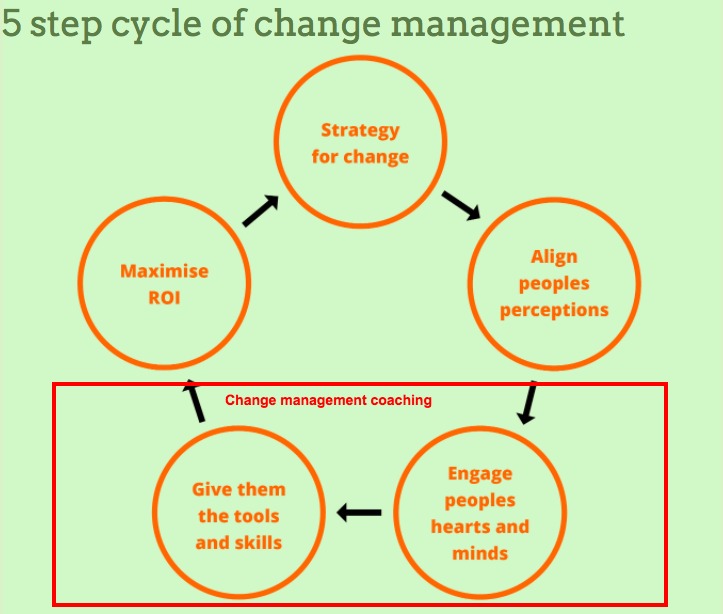
The aim of change management coaching
Why coach?
Working one-to-one with a professional business coach has been proven to be the most effective way to apply new skills on the job, quickly and productively. In case studies where coaching was added to training experiences, productivity rose 88%. Without coaching productivity rose only 22%.
(Source: “Effects on Productivity in a Public Agency,” Public Personnel Management)
Change management coaching is often approached poorly. Senior management and change leaders rely on the acceptance of the goals of organisational change to provide the drivers for effective coaching.
Having communicated the need for change and the vision of the future to managers and supervisors, the biggest mistake is to think that this is enough to maintain the momentum of change.
This is relying on the ‘tell them’ model. It’s common for managers to complain about having to solve their employee’s problems all the time. As the old aphorism teaching a man to fish says, giving people the answer does nothing for their longer term productivity.
The intention of coaching in change management is to help people work through the implications of the change themselves, without telling them what to do. This helps them create the change for themselves, and thus become co-creators of the change. People are more likely to support what they themselves create.
People are more likely to support what they themselves create.
The aim of a good change management coaching should be three-fold:
- First, to empower effective sponsorship from the top down
- Second, to support both managers and employees through the change program
- Third, to support both managers and employees once the change program has been fully adopted
Exclusive Blog Post Bonus: How to Choose a Consultant or Coach for Your Organization?.
The importance of change management coaching
Coaching is the art of improving performance.
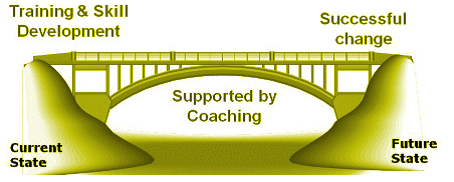
Coaching through a program of change satisfies several objectives. It can, of course, be used to communicate the need for change and to train people in new processes and procedures.
The biggest benefit to change management, though, is the effectiveness of targeted coaching in managing and eliminating resistance to change.
Having identified and ‘enrolled’ your change sponsors, the influence they are able to exert on their peers and employee groups down the line is more than considerable.
The most successful change programs are those that have benefitted from active sponsorship from the very top. When taking on almost impossible challenges requiring total organisational and cultural change, change management legends such as Jack Welch at GE and Lou Gerstner at IBM lived, breathed, ate, and slept their change programs.
Managers further down the line have a similar effect on their people. Without coaching through the change, however, the message of change and its need and long term benefits to all is likely to be miscommunicated and lose its effectiveness.
What change management coaching looks like
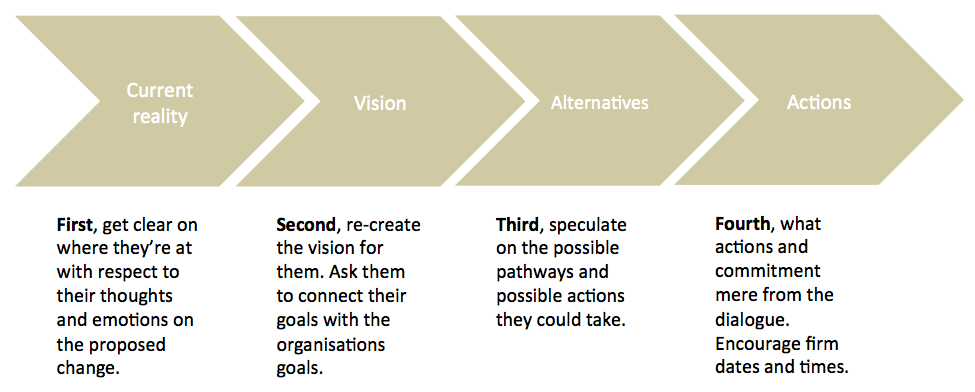
Change management coaching is not simply an opportunity to enforce but should be seen as a forum for the gathering of feedback and voicing of concerns. The coach can learn as much as the student from these sessions; all useful information which can be used to shape the future and identify potential resistance before it happens.
The default mode is to problem-focus and indulge and inflame people’s frustration and resistance – people when in this state will come up with plenty of reasons why the change sucks. Yes, knowing this will make no difference – instead, managers need to have the conversations to help people make sense of the change for themselves
Coaching allows new procedures and processes to be discovered, discussed, and even improved upon. Whether coaching is provided in group events or in one-to-one sessions, it should provide encouragement and reasons for the change to be immersed into a new culture. It also solidifies two-way trust between managers and employees.
Develop your change management coaching plan
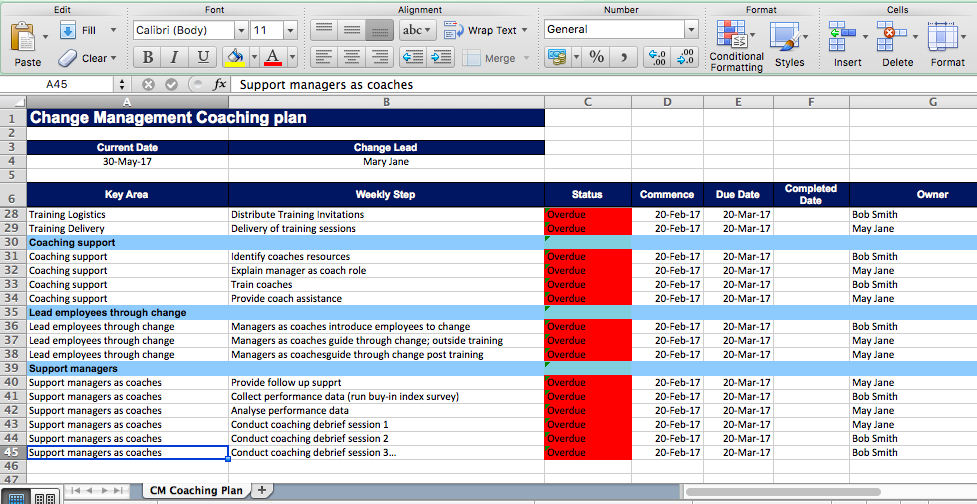
(Download Free Change Management Coaching Plan here)
When considering the requirements of a coaching plan, your change management team should take the needs of all stakeholders into account.
Managers must be coached in the change, coached to coach the change, and then given the opportunity to coach their people.
Only when these basics have been planned and achieved will ‘down-the-line’ coaching become truly effective. With this in mind, there are three steps to take when developing effective change management coaching.
1. Empower managers as change management coaches
The change management program must first be delivered to project sponsors and managers.
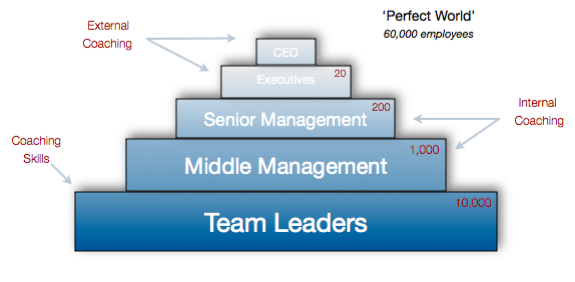
This coaching is often executed by external specialists who have been employed to aid the change project through to completion. Important deliverables here will include:
- Identifying the supervisor’s role in change management
- Providing guidance on manager/ employee communications
- Providing guidance on group coaching
- Effective one-to-one coaching
- Setting expectations and developing timetables and schedules for coaching through change programs
2. Develop group coaching events
Having been coached themselves, managers and supervisors should meet to develop plans for group coaching events, ensuring that key messages are communicated effectively.
Feedback should be actively sought, with group training periods used to break down resistance to change with open discussion and exchange of information. They can also be used to spot key influencers who will help to grow positive support for the change initiative.
3. Develop coaching for individuals
One-to-one sessions will be needed by employees with specific tasks or issues. These can be tailored to individual concerns as well as best-fit coaching. They help with tackling highly resistant employees by addressing their concerns individually and reinforcing self-interests of change.
When developing one-to-one coaching sessions, the manager will need to consider direct effects of cultural change on the employee, where they are on the change progress curve, and to what method of coaching the individual best reacts.
It is then possible to help employees move more quickly through to full acceptance of the change.
The bottom line
Effective change management is not achieved by enforcing change but by coaching people through it.
Effective coaching will increase enthusiasm for change, tackle potential resistance early in the change process, and help identify internal influencers of change.
This process begins with coaching the coaches, and ensuring that sponsors, managers, and supervisors have been prepared to coach down the line.
Effective change management coaching requires a top down, whole of organisation approach in order to reinforce change on willing participants and not enforce change on a resistant workforce.




